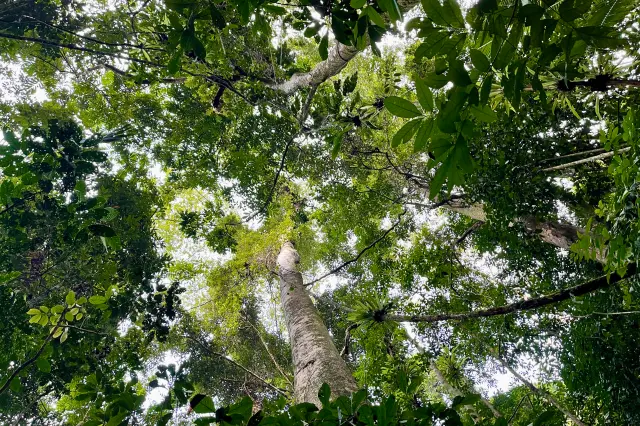-
Why Trump’s Control of the Fed Could Be Dire - 22 mins ago
-
Cat owner narrowly avoids $1k vet visit, can’t believe what’s wrong - 54 mins ago
-
In U.S. Attorney Standoff, Judge Denounces ‘Charade’ by Lindsey Halligan - about 1 hour ago
-
Supreme Court appears likely to strike down California law banning guns in stores and restaurants - about 1 hour ago
-
Prosecutors Subpoena Minnesota Democrats as Part of Federal Inquiry - 2 hours ago
-
John Harbaugh Comments on QB Jaxson Dart After Being Named Giants Head Coach - 2 hours ago
-
Majority of Supreme Court Appears Skeptical of Hawaii Gun Law - 3 hours ago
-
Lamar Jackson Predicted to Be Traded to Disappointing AFC Team - 3 hours ago
-
In U.S. Attorney Standoff, Judges in Virginia Seek to Fill Top Prosecutor Job - 3 hours ago
-
Mikie Sherrill Is Sworn In as Governor of New Jersey - 4 hours ago
Map Shows Climate Fears Falling Around the World
Fears of climate change are decreasing in the United States, China and many Western countries relative to other concerns, according to a new survey.
War, economic hardship and disease were more pressing overall for the 40,000 people surveyed around the world by the Forest Stewardship Council (FSC) with polling firm Ipsos. Concerns over climate had nonetheless risen in some places, including India, Brazil and Japan.
“People are just juggling multiple crises,” Subhra Bhattacharjee, director general of the FSC, told Newsweek. “In addition, in the face of policy uncertainty globally, my feeling is that there is also an illusion of the sense of agency that we can do something about it.”
Why It Matters
Diminishing worries in key countries about the changing climate could decrease the prospects of coordinated international action to address rising levels of carbon dioxide in the atmosphere as solutions continue to be sought by climate campaigners and promoted by international bodies such as the United Nations.
It bolsters the case against climate action of those such as U.S. President Donald Trump, who has called it a “scam” and “the greatest con job ever perpetuated”.
What To Know
Worldwide, the proportion of those in the survey who rated climate as a top concern had fallen from 34.5 percent in 2022-23 to 32.3 percent in 2025, the data showed. Meanwhile, the number who put conflict as a top concern had risen from 43.2 percent to 48.4 percent.
“My first takeaway is that we need to communicate differently. We need to meet people where they are and discuss climate in terms of what it means for daily lives, what it means in terms of concrete action, and be very upfront about what the costs are, but what benefits it will bring,” Bhattacharjee said.
“Catalyzing climate action has to be driven by concrete day-to-day realities of people’s lives. We cannot talk in concepts anymore.”
The U.N. has called climate change the defining issue of our time and says that it threatens shifting weather patterns that could affect food production and send sea levels rising. A majority of climate scientists believe this is because human activity has increased the amount of carbon dioxide in the atmosphere rather than the other solar, geological and natural shifts that influence the climate over time.
The World Meteorological Organization has said 2024 was likely the first year in which temperatures averaged more than 1.5 degrees Celsius (2.7 degrees Fahrenheit) over the 1850-1900 average.
World leaders convene in Belem, Brazil, next month for the U.N.’s COP30 climate talks, marking 10 years since the landmark Paris Climate Agreement to cut emissions enough to avoid what its advocates say would be the most catastrophic warming. But recent reports show that goal is nowhere near.
Not Just Donald Trump
In the United States, Trump has made clear his disdain for the climate agenda, but Bhattacharjee said changes in climate sentiment were not about one figure.
“I see this as a pattern of a general escalation in climate denial across the world, not just in one country,” she said.
While the survey showed that climate change had dropped down the list of priorities in the United States, it had fallen further in Western Europe, where countries had taken much more action to try to stem it, including through the adoption of increased use of renewable energy that has sent costs soaring and become a drag on economies.
“I think the issue is that upfront climate action is not painless. That information needed to have been shared more transparently. That discourse means that political support for these difficult decisions tends to decrease,” she said
Concerns about the climate had increased in some countries such as Mexico and South Korea.

While people might be less worried about the climate, they remain very much concerned about the environment—including forests that are important ecosystems beyond their role in helping to influence the climate, Bhattacharjee said. Despite shifting attention, 72 percent of consumers globally still preferred products that do not harm plants or animals, the survey showed.
A recent report by the U.N. Food and Agriculture Organization said the rate at which forests were being lost had reduced since the 1990s and that forest area had been increasing in Asia, Europe, North and Central America, though had declined in South America and Africa.
What People Are Saying
Subhra Bhattacharjee, director general of the Forest Stewardship Council: “A lot of ongoing narratives, competing narratives, are leaving people in a space where they don’t know which version is really true. So it’s that information-overwhelmed people together with loss of trust that we feel has caused climate to not feature or has brought up other issues over climate.”
U.S. President Donald Trump at the United Nations: “If you don’t get away from the green energy scam, your country is going to fail.”
What Happens Next
Increasing security concerns as a result of wars in Europe and the Middle East and the prospect of confrontations in Asia, in addition to worries over the global economy and trade, may well sideline global cooperation on climate action—particularly with the United States strongly against it. This may leave countries to do more in terms of adaption to the changing climate whether or not the shift reaches the most apocalyptic forecasts of climate campaigners.
Source link










